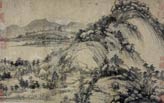Hot issues
Eight ways to transfer illegal assets overseas
Updated: 2011-06-16 07:58
By Yan Jie (China Daily)
BEIJING - Corrupt officials and company executives in China transfer their assets overseas through at least eight channels, according to a report released on Monday by the Anti-Money Laundering Monitoring and Analysis Center set up by the People's Bank of China.
Often a combination of legal and illegal channels is used to make cross-border transfers of ill-gotten gains, the report said.
| ||||
However, the exact amount of assets transferred overseas, since Chinese officials on corruption charges began to flee the country at the end of the 1980s, remains a mystery, said the report.
The report quotes statistics released by the Chinese Academy of Social Sciences, which estimate that up to 800 billion yuan ($123 billion) has been transferred overseas by fleeing or missing officials and company executives since the mid-1990s.
The cross-border transfer of such assets causes huge losses to the country as the majority cannot be recovered and their whereabouts are hard to find, the report added.
The report also provided details about the destinations for corrupt officials and businesspeople.
People with a higher rank or larger assets tended to flee to Western countries such as the United States, Canada, Australia and the Netherlands.
Those who cannot reach Western countries directly, use Hong Kong or some small countries in Africa, East Europe and Latin America as a stopover.
Those with lower rankings or smaller assets often find safe havens in China's neighboring countries such as Thailand, Myanmar, Malaysia, Mongolia and Russia.
E-paper

Pearl on the Yangtze
Wuxi is considered a town of natural beauty and its motto is "city of water and warmth".
Prose and consternation
Riding on a mystery train
Way of a warrior
Specials

When two are one
After a separation of 360 years, Huang Gongwang's famous Dwelling in the Fuchun Mountains has been made whole again.

Wealth of difference
Rich coastal areas offer contrasting ways of dealing with country's development

Seal of approval
The dying tradition of seal engraving has now become a UNIVERSITY major



